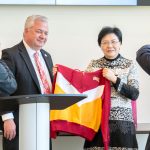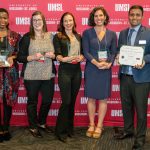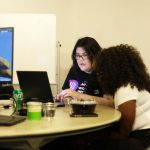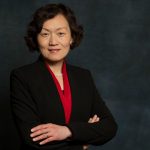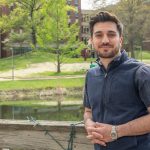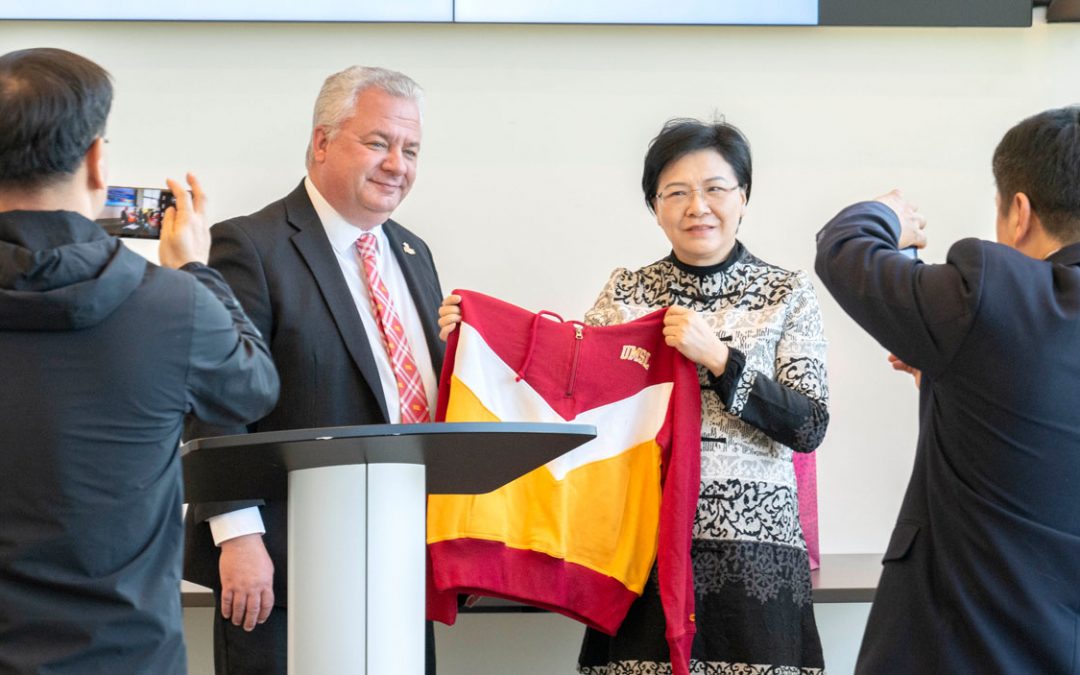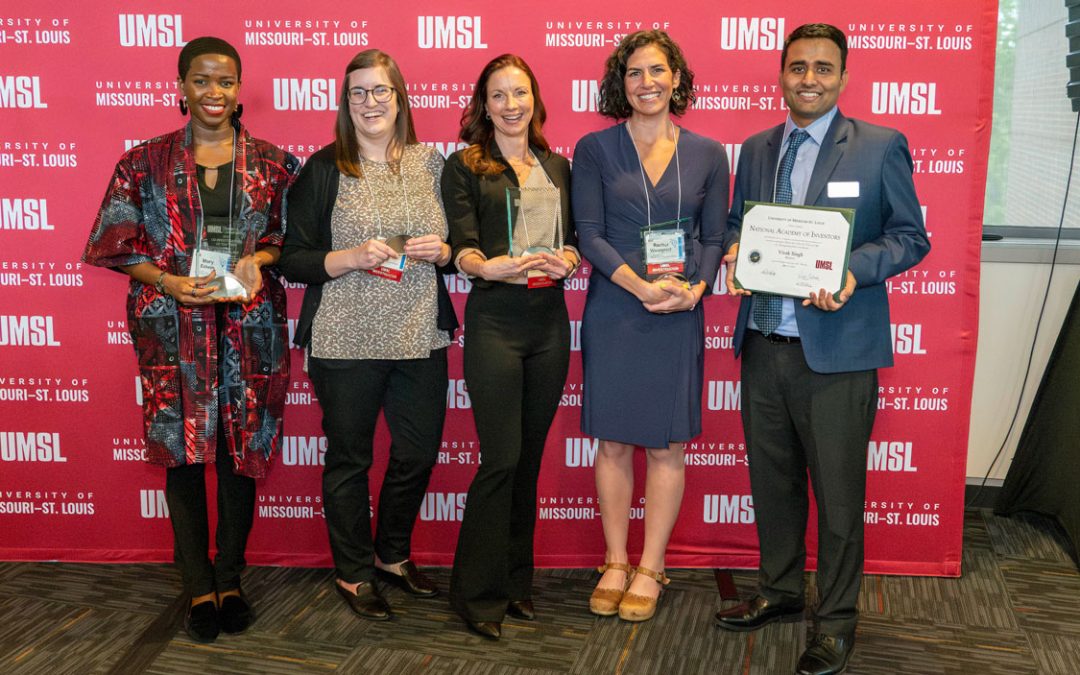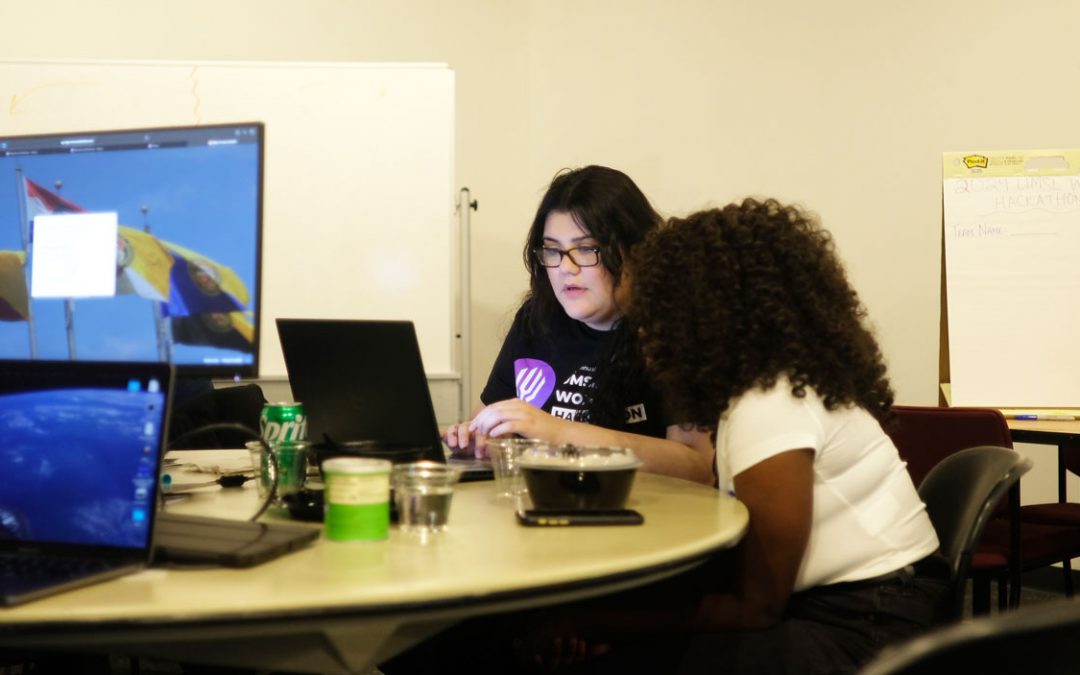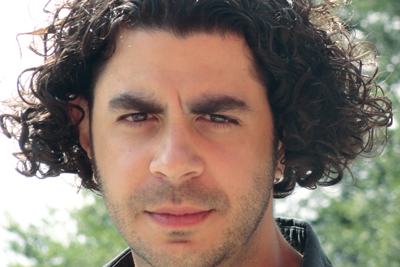
Peter Marina, visiting asstistant professor of sociology at UMSL, discovered a passion for sociology at a young age.
Peter Marina, visiting assistant professor of sociology at the University of Missouri–St. Louis, has had a passion for the subject since he was a kid growing up in New Orleans. After earning two degrees from the University of New Orleans and a doctoral degree in sociology from The New School for Social Research in New York, Marina is now bringing his curiosity and creativity to UMSL.
The UMSL Daily caught up with Marina to find out a little more about him.
How did you first get interested in sociology?
I suspect that my drive towards sociology is similar to most scholars who engage in the discipline. That drive is based on an intellectual curiosity to understand the world. I’ve always thought critically and questioned common sense assumptions that try to make sense of social phenomenon. Sociology, perhaps more than any other of the social sciences, offers the greatest potential for critical thought. Of course, it didn’t hurt that my father has a background in sociology. Although he became a cop, he kept the sociological imagination alive and imparted this imagination to me growing up. For example, when I was around 10 and 11 years old he would take me along with him to work patrolling the streets or working details at a fast food joint on the popular Canal St. in New Orleans. We’d spend hours pretending to be sociologists observing the interactions between people and trying to figure out what was really going on. It helped me become sociologically minded. When I finally began reading sociological literature in high school, it was a natural fit with my way of thinking.
How did you go about getting into sociology as a profession?
I began taking sociology classes in college. I remained in my hometown and attended the University of New Orleans. After graduating with a bachelor’s degree, I remained at UNO for a master’s degree in sociology. Luckily, I earned a scholarship to The New School for Social Research in New York City. The New School has a strong tradition for progressive and critical thought that was quite attractive. The professors at both universities, as well as others I met in New York like David Brotherton and Jock Young, had a strong influence on my intellectual development. I have published with some of them and continue to work on other publications with other past mentors.
Why do you enjoy sociology?
It’s the dominant of all disciplines in the social sciences. Sociology not only claims its autonomy in philosophy, it incorporates all of the social sciences – economics, political science, history and psychology. Although this might offend some of my friends and colleagues, anthropology is a close second to sociology. It also offers the best potential for critical thought and challenges the status quo. In short, sociology is the study of human reality that encompasses anything that passes as knowledge and reality. Further, it’s an exciting time for sociology to critically examine an advanced modern, some would say, post-modern world characterized by rapid change.
The department is talking about bringing in a master’s program in anthropology and sociology. What are the benefits to this and why is it exciting?
We’re trying to bring back to life our master’s program combining sociology and anthropology. We’re going to call it a Master of Arts in Anthropology and Sociology. In fact, we recently had a student and alumni open house with the goal was to bring both groups together to build rapport. We were successful. We had an open forum for dialogue with students and graduates asking for their views on returning the master’s program. I was impressed with how united and unequivocally determined everyone was in standing together to make sure of our success. Most of the current students are planning to apply for graduate school. Their collective voice was heard. They want their master’s degree right here in their hometown, where they have families, responsibilities, networks, rapport with professors, a sense of home and affordable tuition. Simply put, if we start up our program, it will be a success. We want to keep St. Louis’ best and brightest young scholars. And that’s exactly what we will accomplish.


